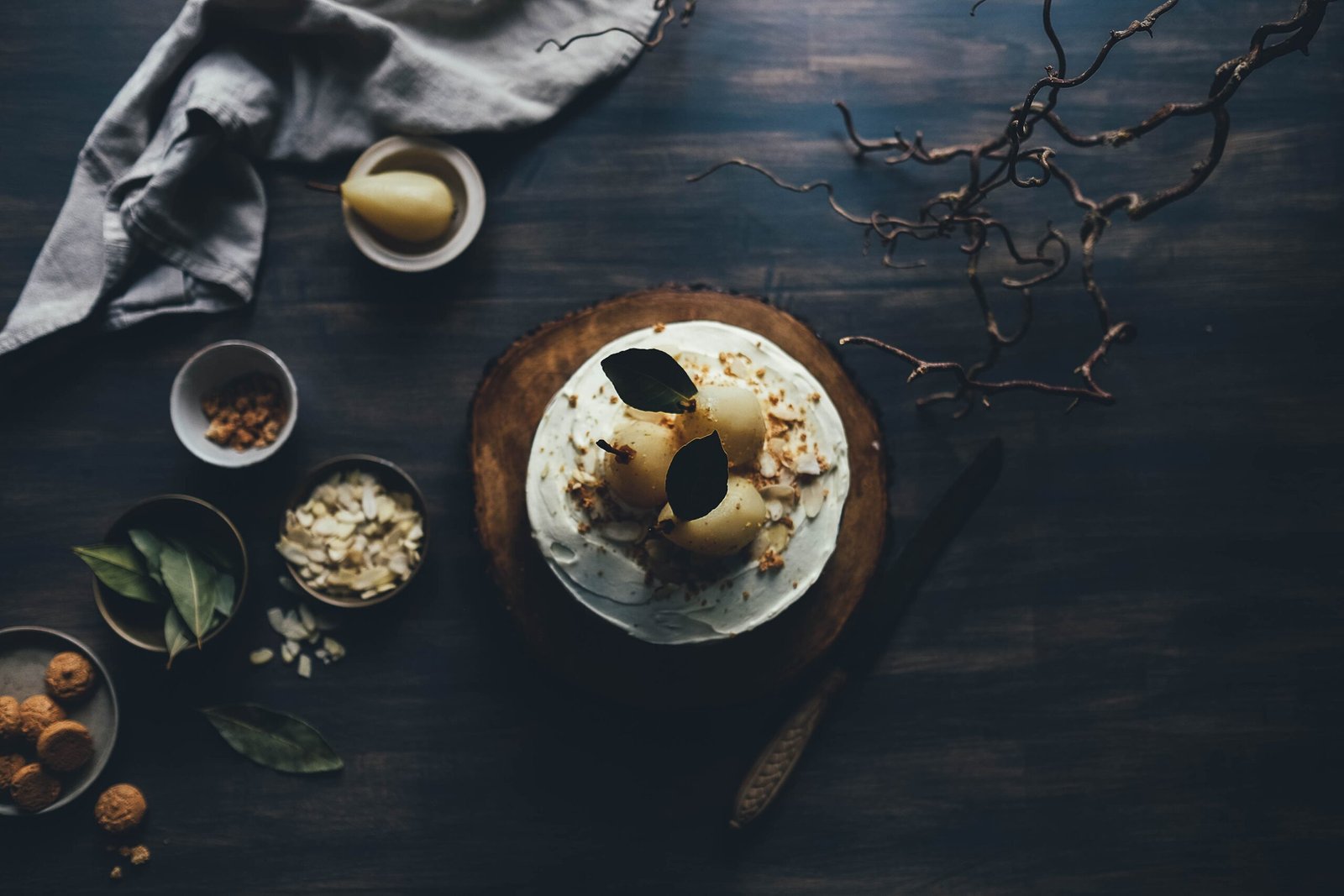Are sleepless nights starting to take a toll on your energy and well-being? Look no further than your own kitchen for a solution. In this article, discover the power of healthy eating for improved sleep and learn what foods can aid in enhancing your sleep hygiene. From the soothing properties of chamomile tea to the sleep-inducing amino acids found in almonds, this article will guide you on a journey towards a better night’s rest. Say goodbye to restless tossing and turning and say hello to a rejuvenating slumber.

This image is property of images.unsplash.com.
The Connection Between Healthy Eating and Sleep
Understanding the Relationship
When it comes to getting a good night’s sleep, many factors come into play. One often overlooked aspect is our diet. The food we eat can have a significant impact on the quality and duration of our sleep. By making healthy food choices, you can improve your sleep hygiene and wake up feeling refreshed and energized.
How Does Food Affect Sleep?
The foods we consume can influence our sleep in various ways. Certain nutrients and compounds found in food can promote better sleep, while others can interfere with it. For example, some foods contain melatonin, a hormone that helps regulate sleep-wake cycles. On the other hand, certain foods and beverages, such as those high in caffeine, can disrupt sleep by increasing alertness and delaying the onset of sleep.
Importance of a Balanced Diet
Maintaining a balanced diet is crucial for overall health and well-being, including sleep quality. A balanced diet provides the necessary nutrients to support the body’s optimal functioning, including sleep regulation. Adequate intake of vitamins, minerals, and other essential nutrients helps ensure that your body can produce the neurotransmitters and hormones needed for a good night’s sleep.
Nutrients That Promote Good Sleep
Melatonin-Rich Foods
Melatonin is a hormone that plays a vital role in regulating sleep-wake cycles. Consuming foods rich in melatonin can help promote better sleep. Some examples of melatonin-rich foods include tart cherries, kiwi, almonds, and walnuts. Incorporating these foods into your diet can help increase melatonin levels naturally and improve sleep.
Tryptophan-Containing Foods
Tryptophan is an amino acid that acts as a precursor to serotonin and melatonin, both of which are important for sleep regulation. Foods high in tryptophan include turkey, chicken, fish, nuts, seeds, tofu, and legumes. Including these foods in your meals can provide your body with the necessary tryptophan to support better sleep.
Magnesium and Its Sleep Benefits
Magnesium is a mineral that plays a crucial role in sleep regulation. It helps calm the nervous system and relax muscles, making it easier to fall asleep and stay asleep throughout the night. Foods rich in magnesium include dark leafy greens, whole grains, nuts, seeds, and legumes. Boosting your magnesium intake can help promote better sleep.
Vitamin B6 and Sleep Regulation
Vitamin B6 is essential for the production of neurotransmitters that influence sleep, such as serotonin and melatonin. Including foods rich in vitamin B6, such as bananas, chickpeas, salmon, and poultry, can help support healthy sleep patterns. Ensuring an adequate intake of vitamin B6 can contribute to better sleep quality.

This image is property of images.unsplash.com.
Foods to Avoid Before Bed
Caffeine and Its Impact on Sleep
Caffeine, found in coffee, tea, chocolate, and many other beverages and foods, is a stimulant that can interfere with sleep. Consuming caffeine too close to bedtime can make it challenging to fall asleep and stay asleep. It’s important to be mindful of your caffeine intake and avoid consuming it several hours before bed to promote better sleep.
High-Sugar Foods and Sleep Disruptions
Consuming foods high in sugar before bed can lead to sleep disruptions. These foods can cause spikes in blood sugar levels, leading to increased energy and alertness when you should be winding down. Avoiding sugary foods, especially close to bedtime, can help maintain stable blood sugar levels and support better sleep.
Spicy and Acidic Foods and Sleep Troubles
Spicy and acidic foods can cause indigestion and heartburn, which can disrupt sleep. If you’re prone to acid reflux or have a sensitive stomach, it’s best to avoid these types of foods, particularly in the evening. Opting for milder and easily digestible options can help prevent sleep troubles associated with consuming spicy and acidic foods.
Alcohol’s Effects on Sleep Quality
While alcohol may initially make you feel drowsy, it can negatively impact sleep quality. Alcohol disrupts the normal sleep patterns, leading to fragmented and less restorative sleep. Limiting alcohol intake, especially close to bedtime, can help ensure better sleep quality and overall restfulness.
Meal Timing and Sleep
Eating Patterns and Bedtime
The timing and frequency of your meals can affect your sleep quality. Consuming large, heavy meals close to bedtime can interfere with digestion and lead to discomfort, making it harder to fall asleep. It’s recommended to have your last substantial meal at least two to three hours before going to bed to allow for proper digestion and prevent sleep disturbances.
The Importance of Avoiding Late-Night Meals
Late-night meals can disrupt the body’s natural sleep-wake cycle. The digestion process requires energy, which can interfere with the body’s preparation for sleep. Additionally, consuming large amounts of food late at night can lead to weight gain and other health issues. It’s best to avoid eating a full meal within a few hours of bedtime to promote better sleep.
The Ideal Pre-Sleep Snacks
If you find yourself hungry before bed, choosing the right snacks can help support better sleep. Opt for light, easy-to-digest options that contain a combination of protein and healthy carbohydrates. Some examples include a small handful of nuts with a piece of fruit, a Greek yogurt with berries, or a slice of whole-grain toast with avocado. These snacks provide a balanced combination of nutrients to satisfy hunger without interfering with sleep.

This image is property of images.unsplash.com.
Establishing a Sleep-Friendly Diet
Building a Healthy Meal Plan
Creating a balanced and sleep-friendly meal plan involves incorporating a variety of nutrient-rich foods. Aim to include a mix of lean proteins, whole grains, fruits, vegetables, and healthy fats throughout the day. Strive for balanced meals that provide a combination of macronutrients (carbohydrates, proteins, and fats) to support overall health and sleep.
Incorporating Sleep-Boosting Foods
To enhance sleep quality, include foods known to promote better sleep in your diet. Adding melatonin-rich foods like tart cherries and incorporating tryptophan-containing foods can have a positive impact on sleep. Including magnesium-rich foods such as dark leafy greens, whole grains, and nuts can also support better sleep. Aim for a well-rounded diet that includes a variety of sleep-boosting foods.
Meal Prep for Better Sleep
Meal prepping can be a helpful strategy for maintaining a sleep-friendly diet. Planning and preparing your meals in advance allows you to make healthier food choices and ensures you have sleep-promoting options readily available. Dedicate a specific time each week to meal prepping, and focus on incorporating a balance of nutrient-dense ingredients that support good sleep.
Lifestyle Factors That Support Healthy Eating and Sleep
Regular Exercise and Its Role in Sleep
Regular exercise has numerous benefits, including promoting better sleep. Engaging in physical activity during the day can help regulate your sleep-wake cycle and increase sleep duration. Aim for at least 30 minutes of moderate-intensity exercise most days of the week for optimal sleep quality.
Managing Stress and Improving Sleep Quality
High levels of stress can significantly impact sleep quality. Implementing stress-management techniques such as meditation, deep breathing exercises, or engaging in relaxing activities can help improve sleep. Creating a bedtime routine that focuses on relaxation can also prepare your mind and body for a restful night’s sleep.
Creating a Relaxing Sleep Environment
Your sleep environment plays a crucial role in the quality of your sleep. Ensure your bedroom is dark, quiet, and at a comfortable temperature. Use blackout curtains, earplugs, white noise machines, or other sleep aids as necessary to create an environment conducive to restorative sleep.
Additional Tips for Sleeping Better
Hydrating Properly for Optimal Sleep
Staying adequately hydrated is essential for overall health and can also improve sleep quality. Avoiding excessive fluid intake close to bedtime can prevent the need for frequent trips to the bathroom during the night. It’s best to prioritize hydration earlier in the day and limit fluid intake in the evening to promote uninterrupted sleep.
The Benefits of Herbal Teas for Relaxation
Certain herbal teas, such as chamomile, lavender, and valerian root, have calming properties that can promote relaxation and better sleep. Enjoying a warm cup of herbal tea before bed can help create a soothing bedtime routine and aid in the transition to sleep. Be mindful of choosing caffeine-free herbal teas to avoid any stimulant effects.
Using Supplements Wisely
While a well-balanced diet should provide most of the necessary nutrients for good sleep, some individuals may benefit from supplements. Consult with a healthcare professional or nutritionist before considering any sleep-enhancing supplements. They can provide guidance on the appropriate supplements and dosages, ensuring they are safe and effective for your specific needs.
Seeking Professional Help for Sleep and Nutrition
Consulting with a Sleep Specialist
If you continue to struggle with sleep despite implementing lifestyle changes and healthy eating habits, it may be beneficial to consult with a sleep specialist. They can assess your sleep patterns, perform diagnostic tests if necessary, and provide personalized recommendations based on your specific sleep needs.
Nutritionist’s Guidance for Better Sleep
For personalized guidance on how to tailor your diet to improve sleep, consider consulting with a nutritionist. They can help assess your current eating habits, identify areas for improvement, and create a customized meal plan that supports better sleep quality. A nutritionist can also assist in addressing any nutrient deficiencies that may be affecting your sleep.
Tracking and Evaluating Your Progress
Keeping a Sleep and Food Diary
Keeping a sleep and food diary can provide valuable insights into the relationship between your diet and sleep. Track what you eat and drink throughout the day, as well as your sleep duration and quality. Look for patterns and correlations between your food choices and sleep patterns to identify any potential triggers or areas for improvement.
Assessing the Relationship Between Diet and Sleep
Regularly assess the impact of your diet on your sleep quality. Pay attention to how different foods make you feel before bed and upon waking. If you notice certain foods negatively impacting your sleep, consider reducing or avoiding them in the future. Adjust your diet as needed to optimize your sleep.
Adjusting and Refining Your Approach
Improving your sleep and diet is an ongoing process. Pay attention to your body’s responses and make adjustments as needed. Experiment with different sleep-friendly foods, meal timings, and lifestyle practices to find what works best for you. Be open to refining your approach as you learn more about how your diet and sleep intersect.
Conclusion
Incorporating healthy eating habits into your lifestyle can have a significant impact on your sleep quality. By including sleep-promoting nutrients in your diet, avoiding certain foods before bed, and establishing a sleep-friendly routine, you can maximize your chances of experiencing restful and rejuvenating sleep. Remember, everyone’s sleep and dietary needs are unique, so it’s essential to pay attention to your body and seek professional guidance when necessary. With a balanced diet, proper meal timing, and mindful lifestyle choices, you can cultivate a sleep-friendly diet and wake up feeling refreshed each day. Sweet dreams!